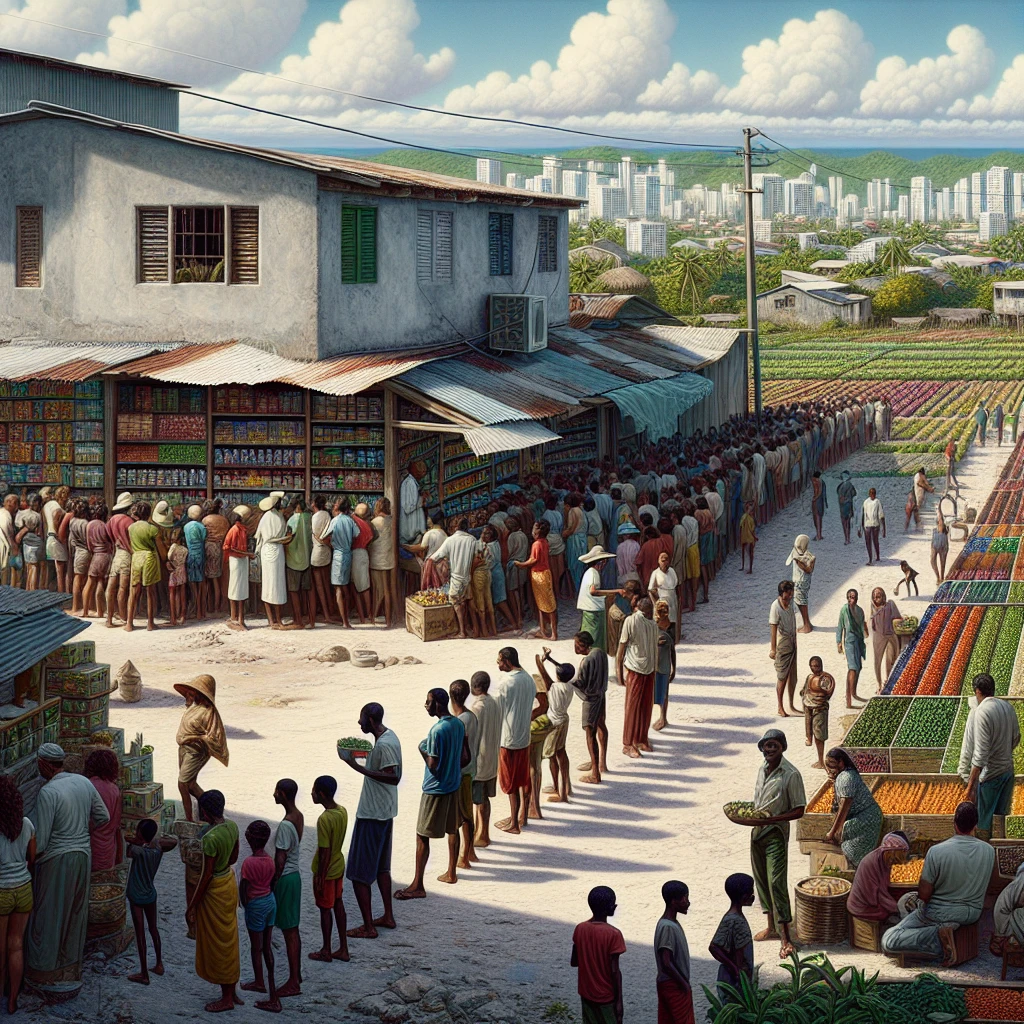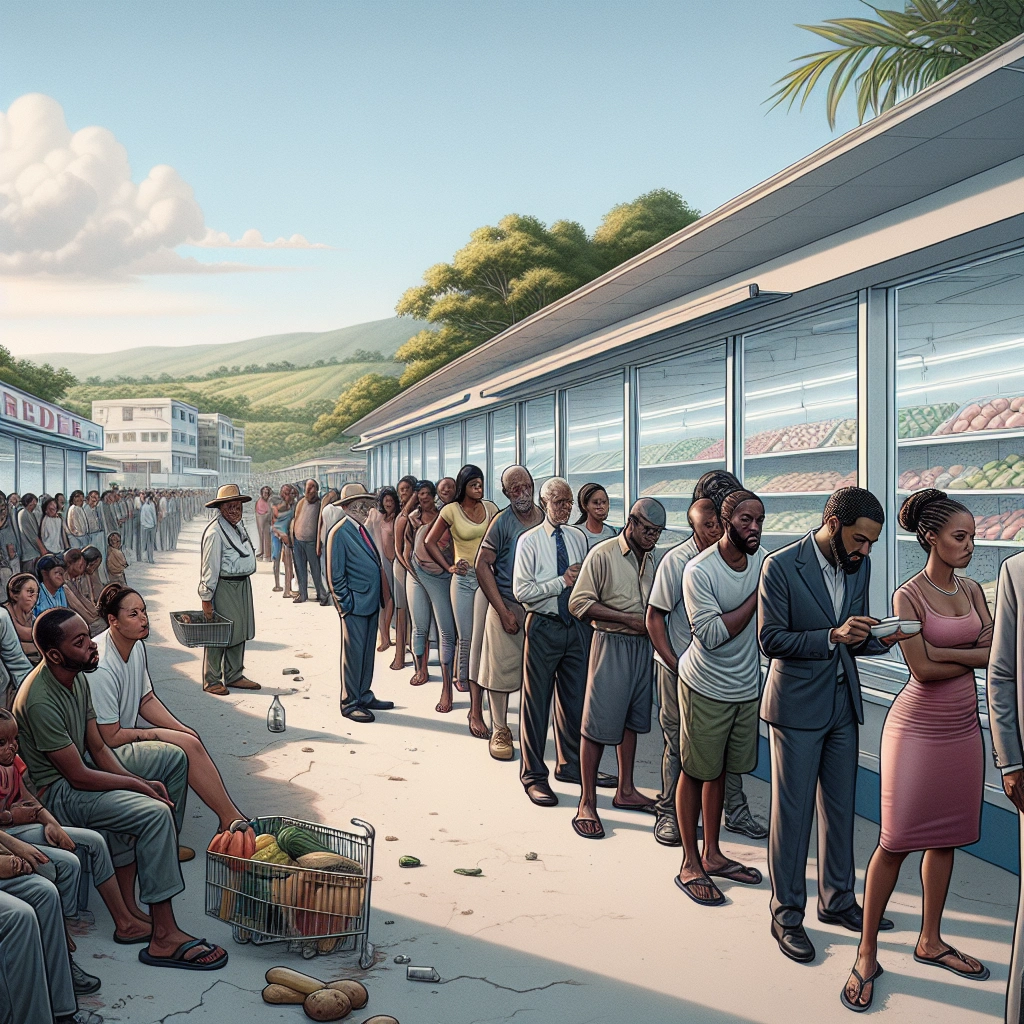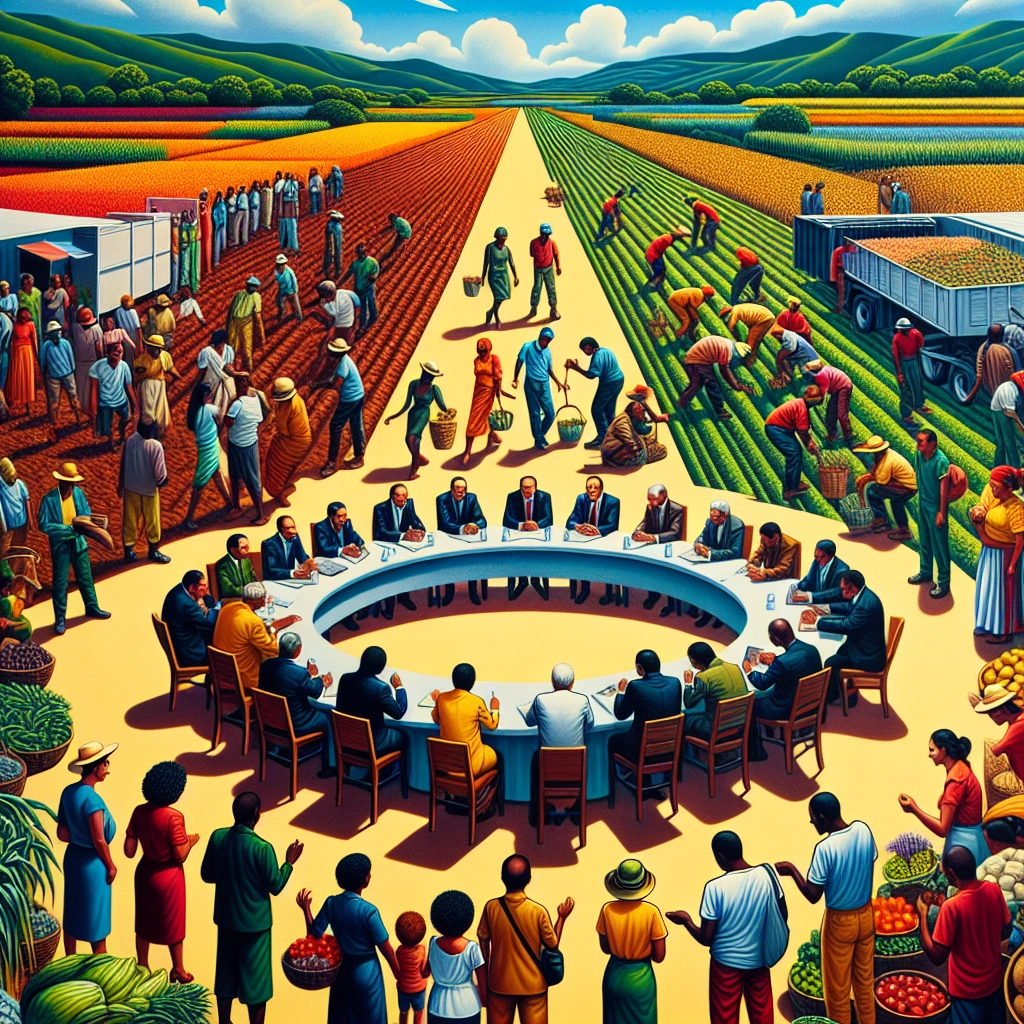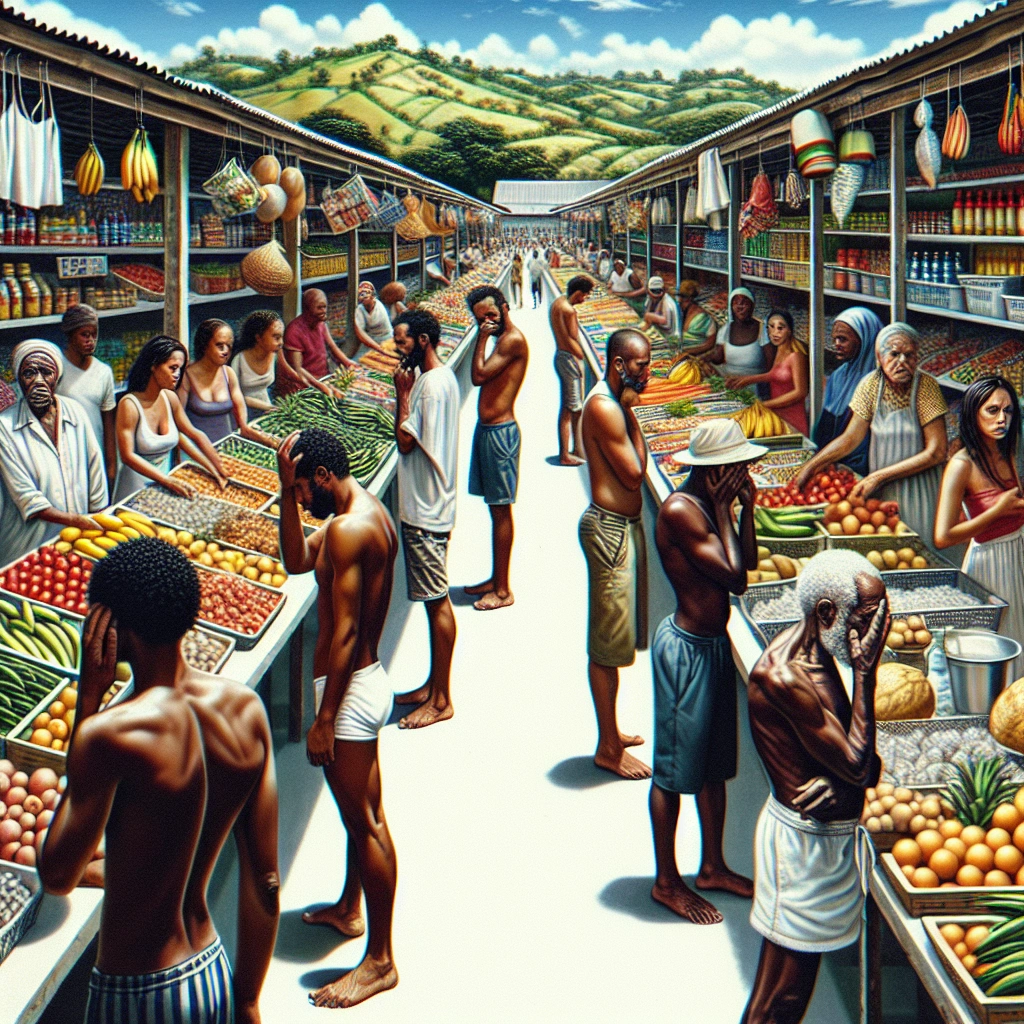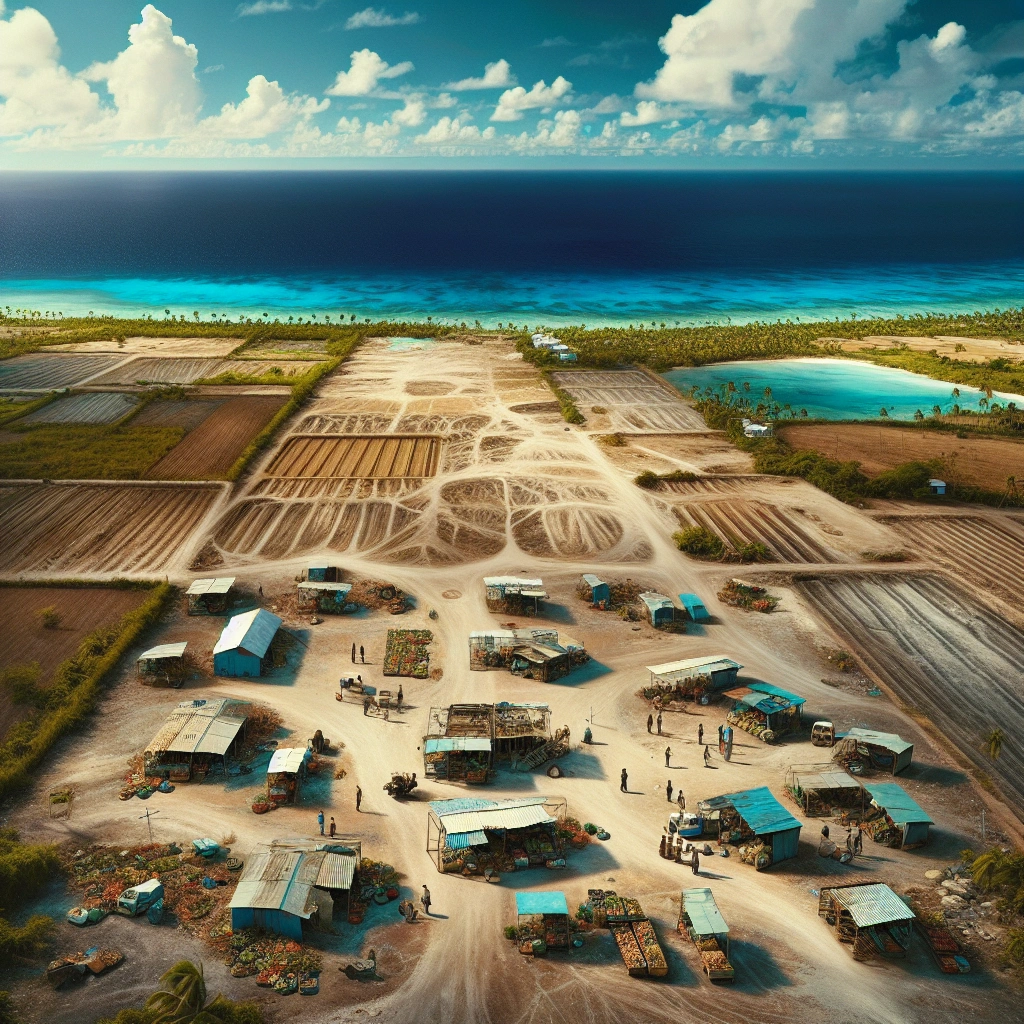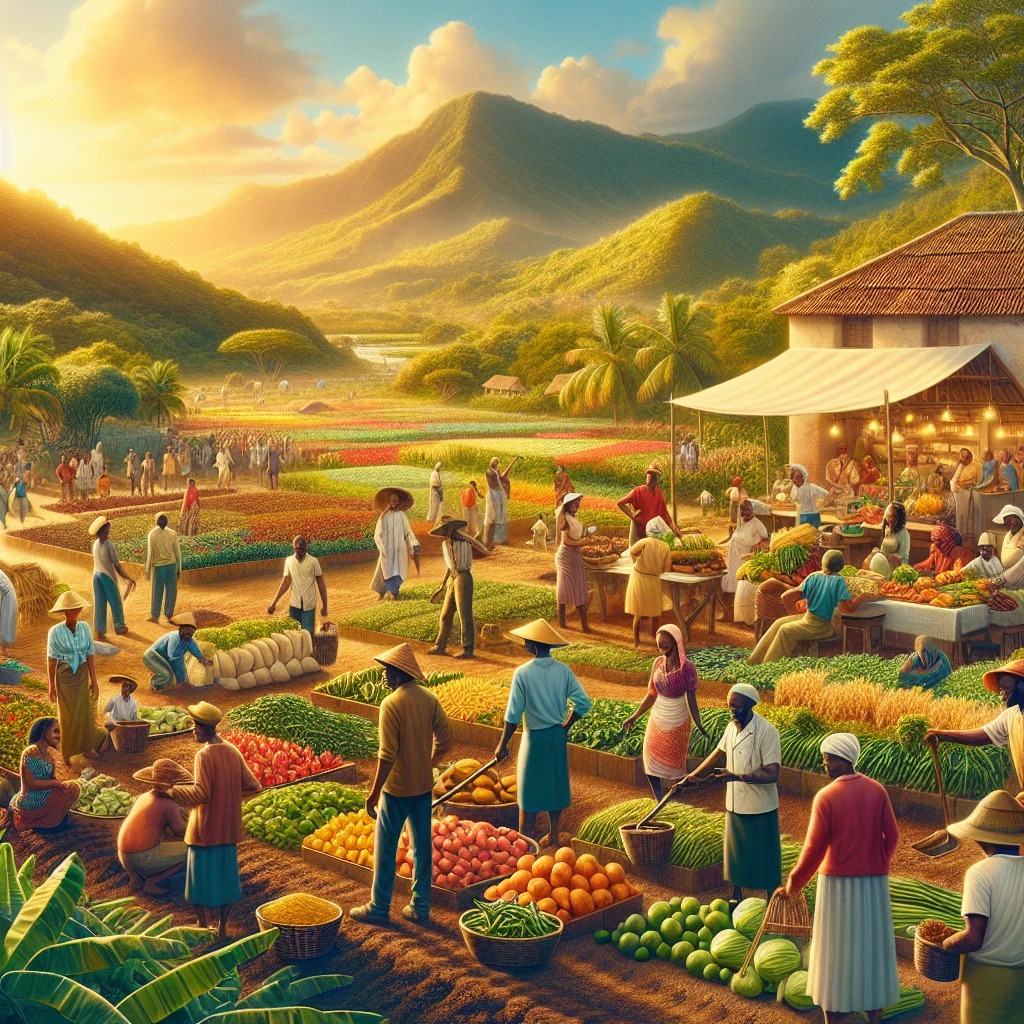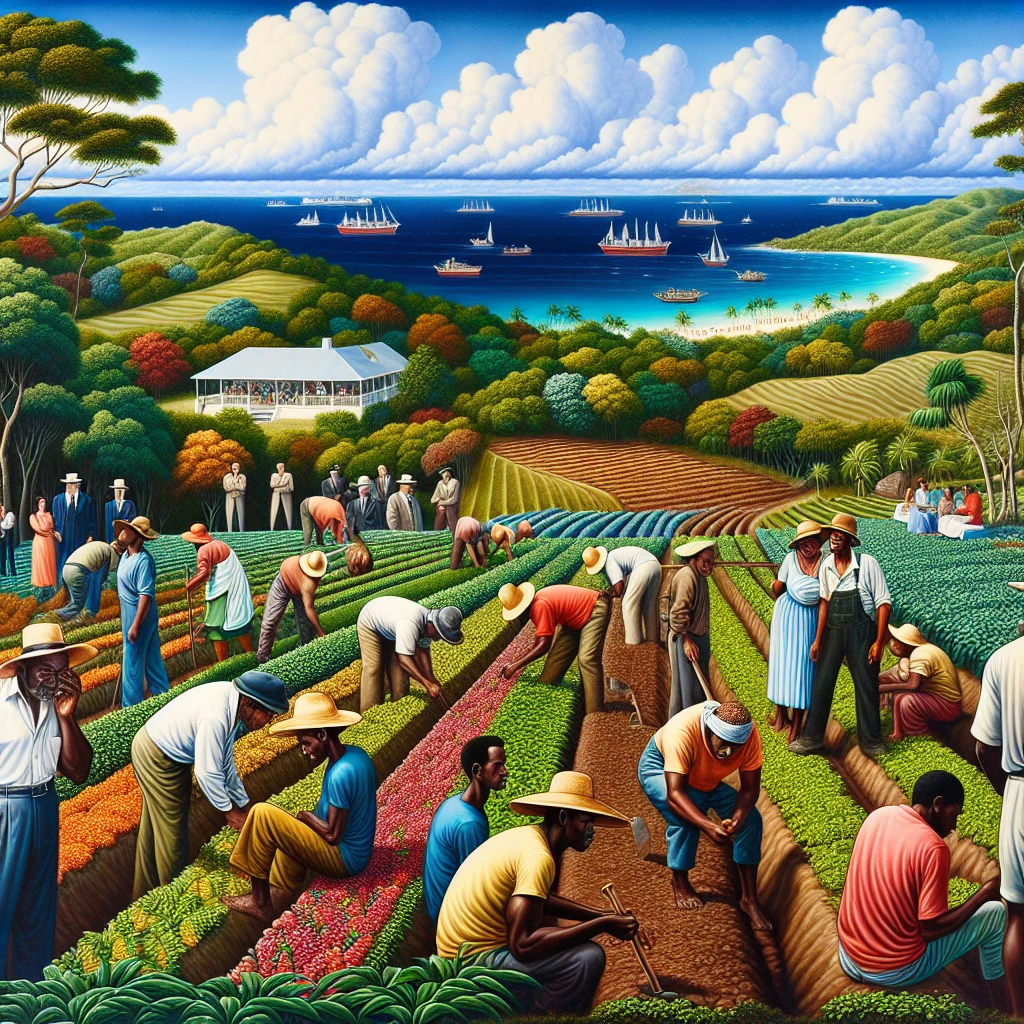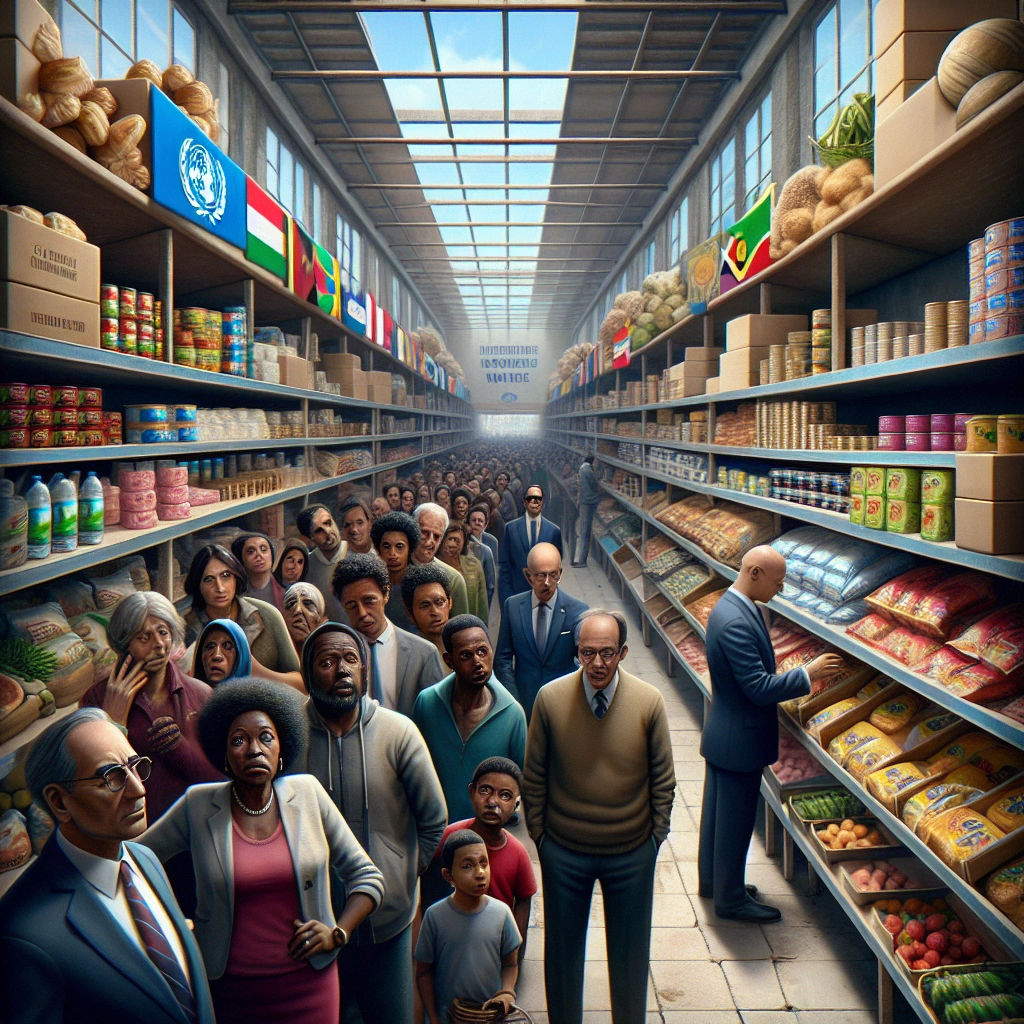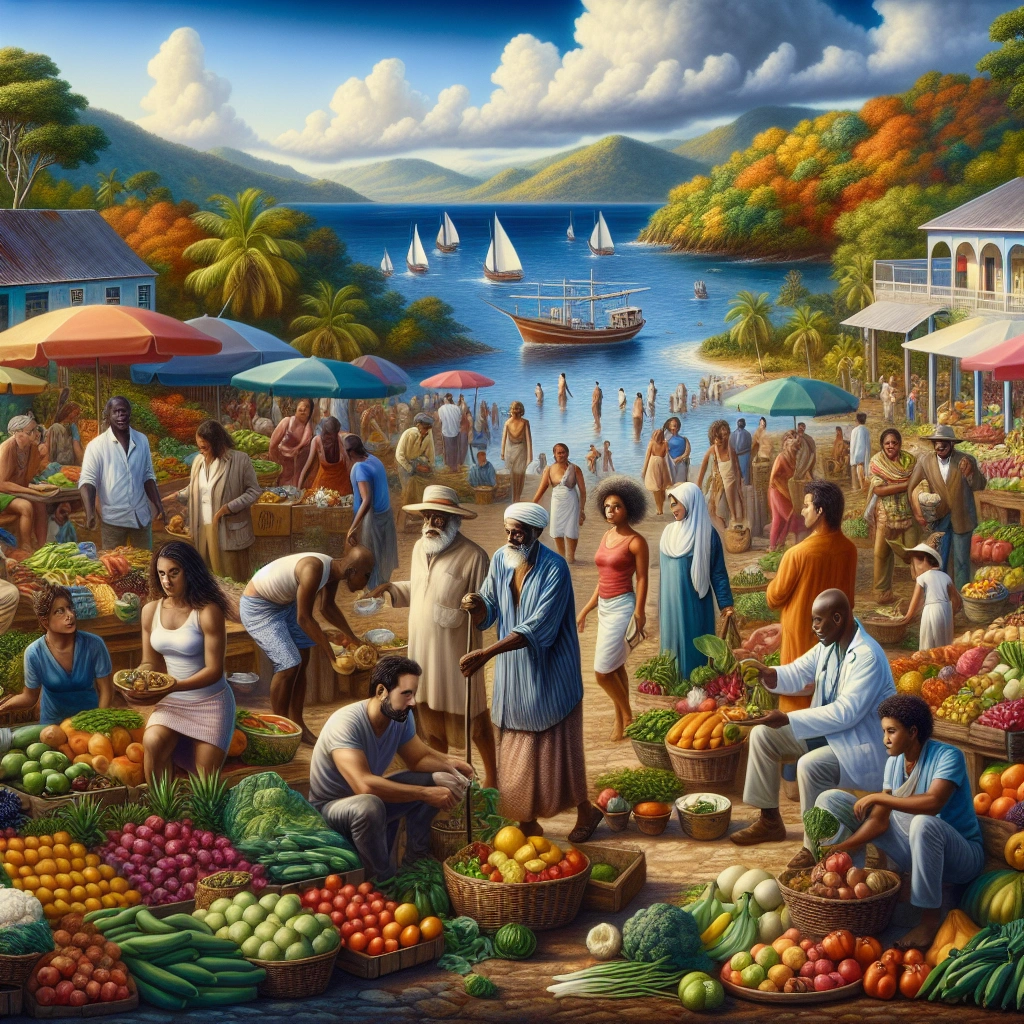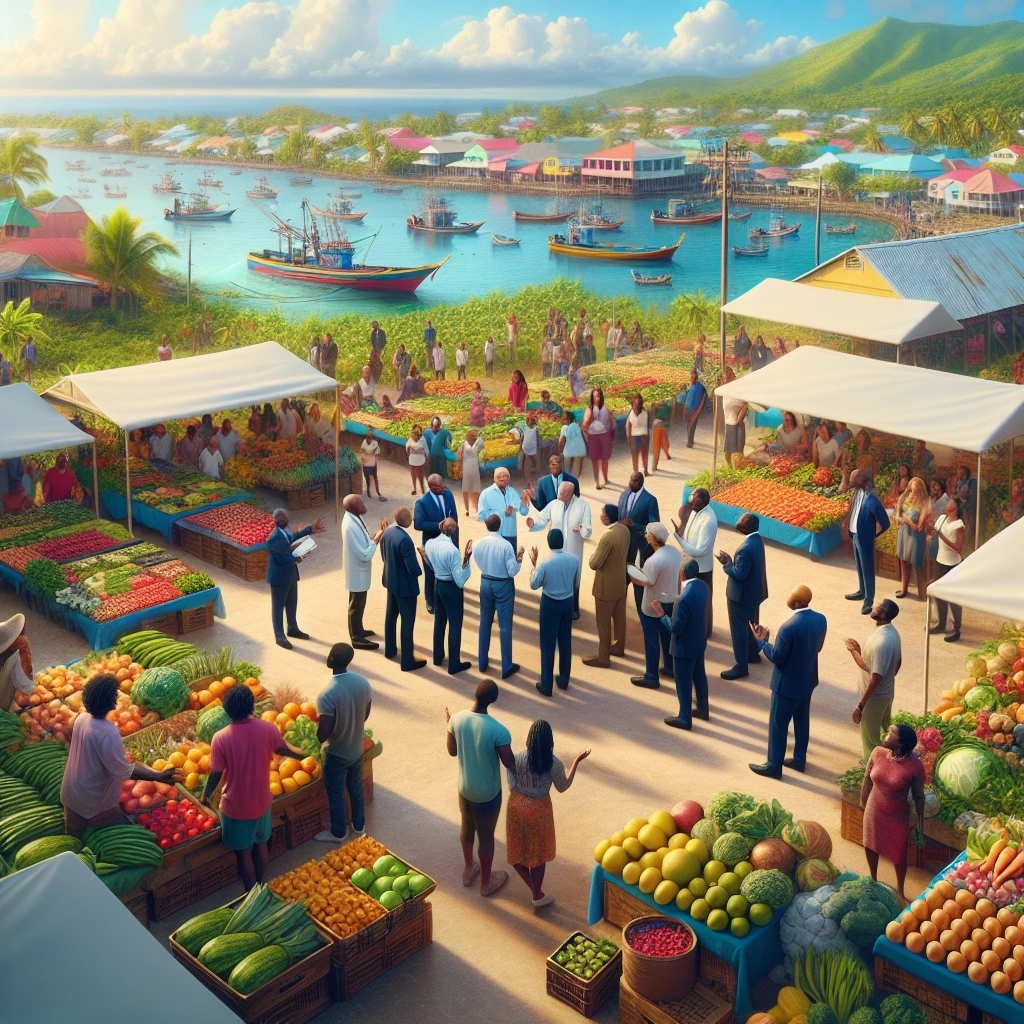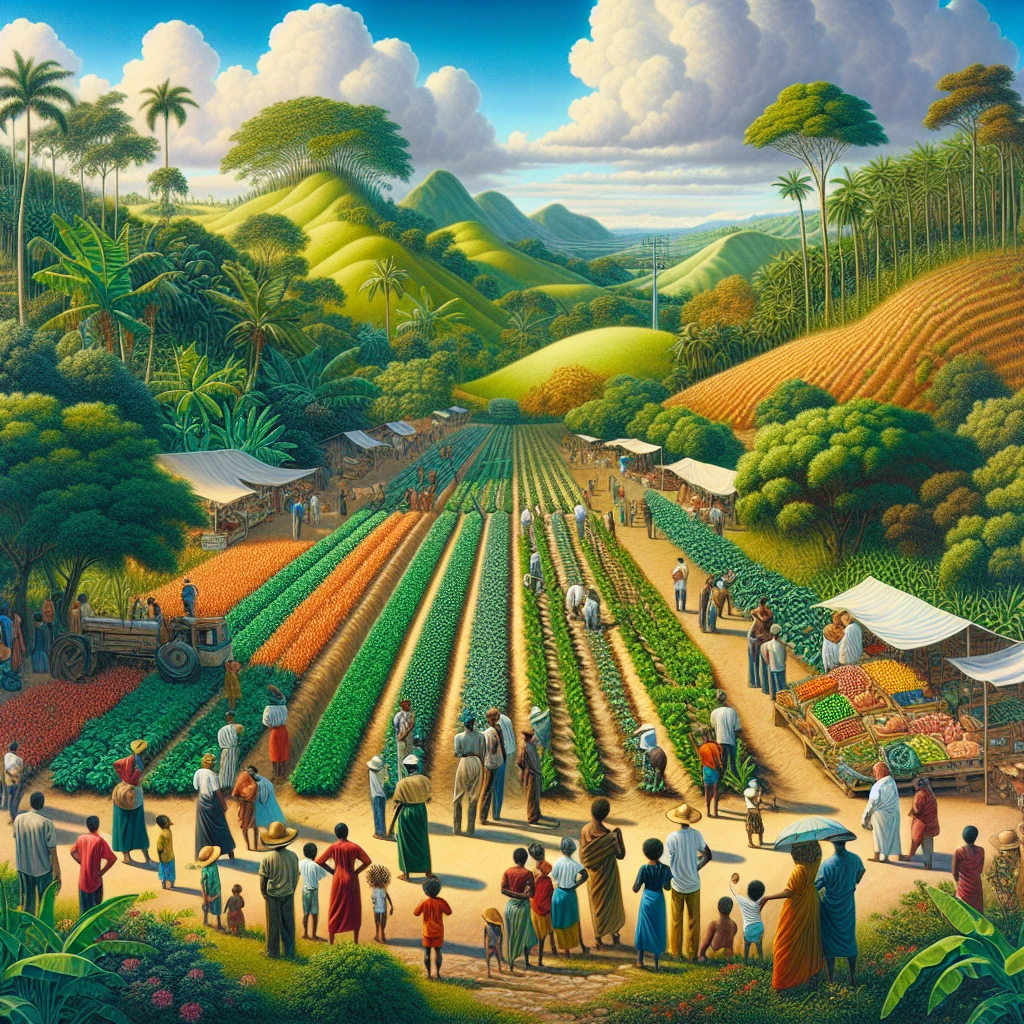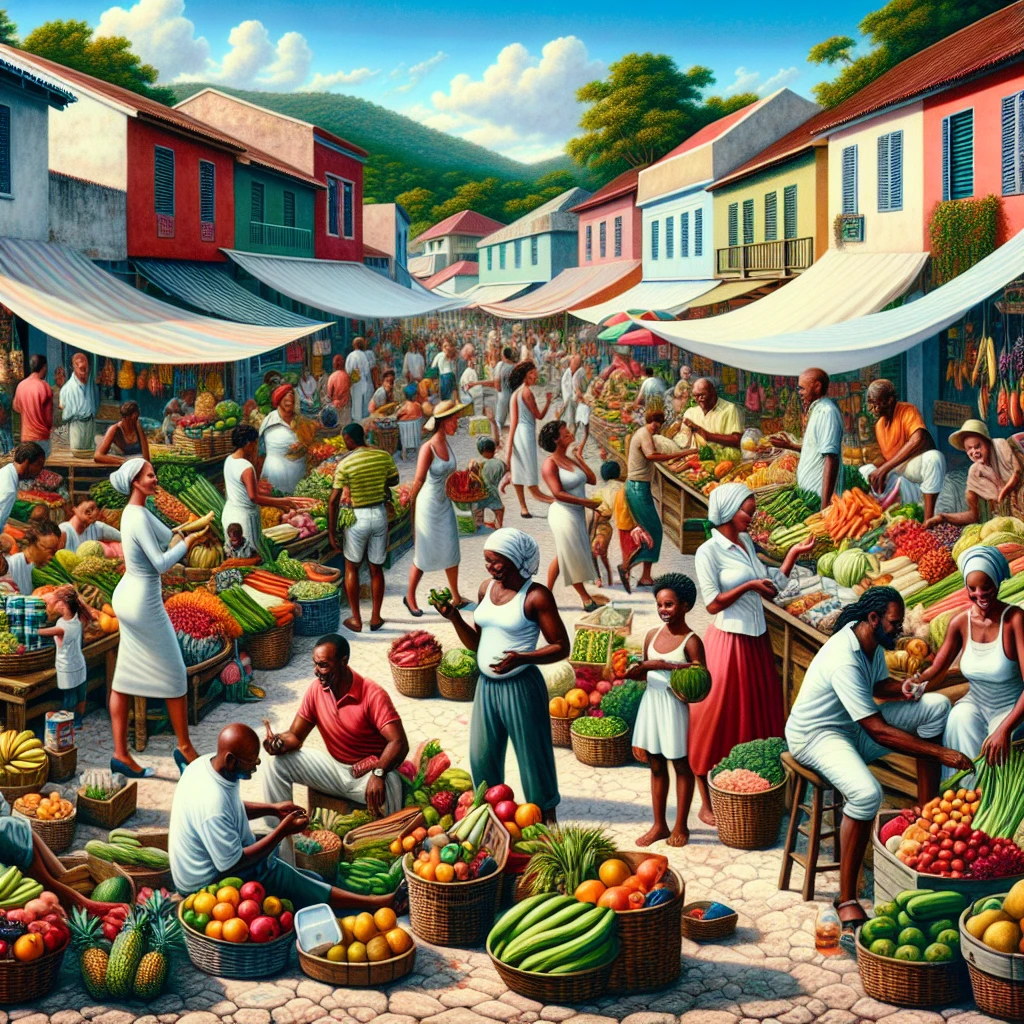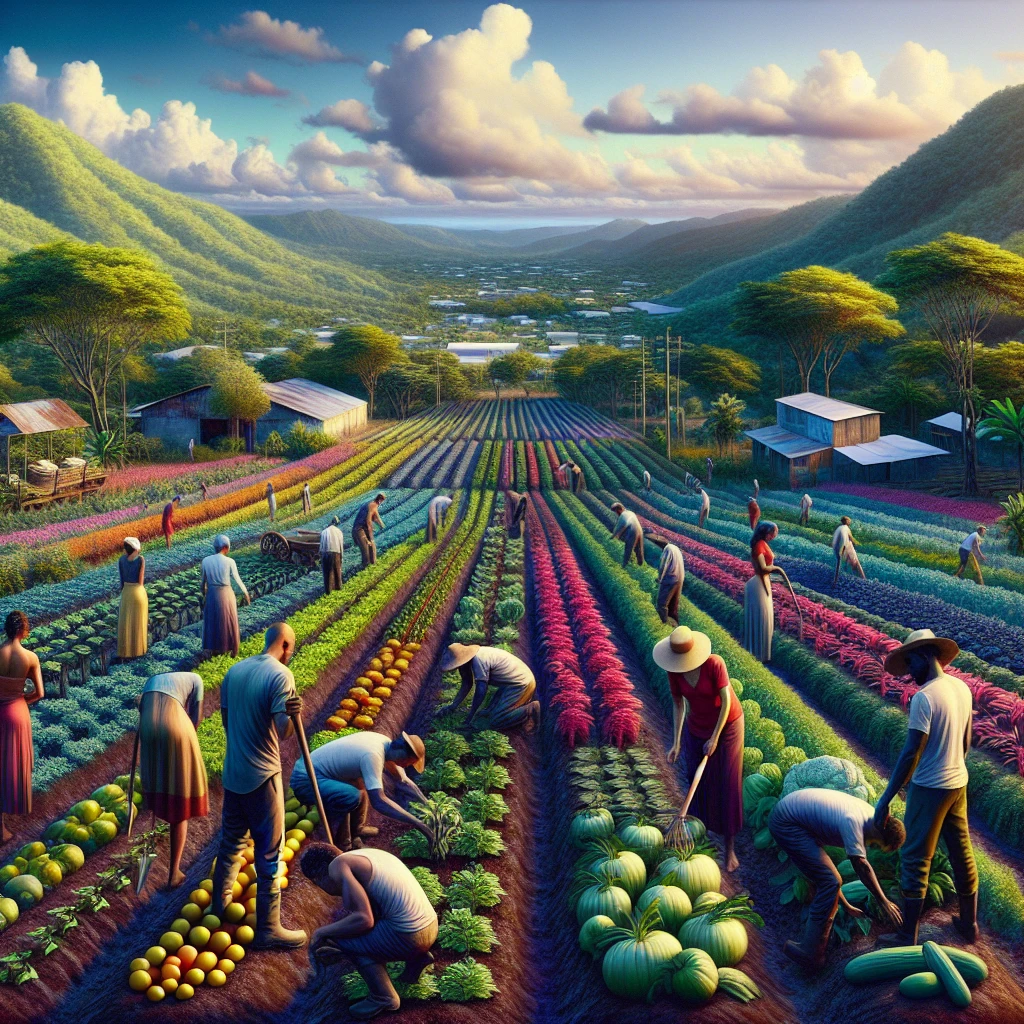

Food security refers to the access and availability of sufficient, safe, and nutritious food for all individuals. It is essential for ensuring that people have the resources they need to meet their dietary needs.
Politicians across the Caribbean have not given food security the attention it deserves, despite its critical importance in ensuring the well-being and prosperity of the region’s population. The lack of focus on food security by politicians has led to significant challenges in addressing hunger and malnutrition in the Caribbean.
Lack of Political Attention
Politicians across the Caribbean have not given food security the attention it deserves.
Inadequate policies and regulations
The lack of attention to food security has resulted in inadequate policies and regulations, leaving vulnerable populations at risk of hunger and malnutrition. Without effective regulations in place, there is limited accountability and oversight, leading to potential food supply chain disruptions and compromised food safety standards.
Insufficient government funding for food security programs
The insufficient government funding for food security programs further exacerbates the problem. Without adequate financial support, essential initiatives such as food distribution, agricultural development, and nutrition assistance cannot reach their full potential, ultimately impacting the well-being of communities across the Caribbean.
Economic Impact
Food insecurity has a significant impact on the economy, leading to decreased productivity, increased healthcare costs, and reduced economic growth. With a lack of food security, individuals are more susceptible to illnesses and diseases, resulting in higher healthcare expenditures and decreased workforce participation.
Additionally, food insecurity can lead to lower educational attainment and cognitive development, limiting the potential contributions of affected individuals to the economy.
Effects of lack of food security on the economy
The effects of lack of food security on the economy are multi-faceted. It leads to reduced labor productivity, increased healthcare costs, and impedes economic growth.
Moreover, food insecurity can exacerbate social inequalities, leading to higher social welfare expenditures and reduced overall economic output.
Loss of potential revenue due to food insecurity
Food insecurity results in a loss of potential revenue for countries as healthcare costs escalate, productivity decreases, and educational outcomes are negatively impacted. This loss is not just monetary but also includes the untapped potential of individuals who are unable to fully contribute to the economy due to the effects of food insecurity.
Social Impact
Malnutrition and its effects on the population
Malnutrition has devastating effects on the population, especially in the Caribbean where food security is not given the attention it deserves by politicians. It leads to stunted growth and hinders cognitive development in children, impacting their future potential and productivity.
Additionally, malnutrition increases the risk of various health issues, affecting the overall well-being of the population. This vicious cycle of malnutrition perpetuates poverty and inequality, creating significant socio-economic challenges for the region.
Increased poverty and inequality
The disregard for food security by Caribbean politicians contributes to increased poverty and inequality. Malnutrition, resulting from inadequate attention to food security, amplifies health challenges and hinders human capital development, leading to reduced earning potential and increased healthcare costs.
This perpetuates a cycle of poverty, limiting access to quality education, healthcare, and economic opportunities. As a result, it deepens the social divide and widens the wealth gap, perpetuating a cycle of inequality that undermines the region’s social and economic progress.
| Effects of Inadequate Food Security | |
|---|---|
| Malnutrition Impact | Socio-Economic Ramifications |
| Stunted Growth and Cognitive Development | Increased Healthcare Costs and Reduced Human Capital |
| Health Challenges | Limitation of Economic Opportunities and Deepened Wealth Gap |
Environmental Impact
Agricultural practices and environmental degradation
The impact of agricultural practices on the environment is substantial. The use of pesticides, fertilizers, and other chemicals leads to water and soil pollution.
Moreover, large-scale livestock farming contributes to soil degradation and erosion. Additionally, irrigation for crop production accounts for a significant portion of freshwater consumption, exacerbating water scarcity.
These practices collectively contribute to environmental degradation, posing serious challenges to sustainable food production and security.
Impact of climate change on food security
Climate change has profound effects on food security. Extreme weather events, such as floods and droughts, can harm crops and lead to reduced agricultural yields.
Rising temperatures and changes in precipitation patterns affect the reliability of food production, posing uncertainties for global food supply. Additionally, climate change leads to environmental damage through increased greenhouse gas emissions and deforestation associated with agricultural activities.
These impacts further exacerbate food insecurity, particularly in regions already facing water constraints. The need for urgent attention to mitigate the environmental effects of agriculture and address climate change’s impact on food security is crucial.
| Environmental Impact | Agricultural practices and environmental degradation |
|---|---|
| Water Pollution | Pesticides and fertilizers contribute to water pollution and marine ecosystem degradation |
| Soil Erosion | Industrial farming practices lead to soil degradation and erosion, impacting agricultural sustainability |
| Freshwater Consumption | Irrigation for crop production accounts for 70% of human freshwater consumption, exacerbating water scarcity |
Historical Context
In the Caribbean, food security has long been neglected, posing significant challenges to the region. With a heavy reliance on food imports and the added pressure of the COVID-19 pandemic and climate crises, the issue of food insecurity has become increasingly severe.
The lack of attention to this critical matter by politicians across the Caribbean has led to a compounded food crisis, impacting not only domestic consumption but also the vital tourism industry.
Historical neglect of food security in the Caribbean
The historical neglect of food security in the Caribbean can be attributed to a combination of factors, including an overreliance on imports, inadequate agricultural policies, and insufficient investment in sustainable food production. The failure to prioritize this fundamental need has exacerbated food insecurity, adversely affecting the lives of many individuals and families across the region.
Previous government efforts to improve food security
Previous government efforts to address food security have been limited and often lacked the necessary focus and resources to bring about substantial change. While some initiatives aimed to boost food production and enhance agricultural practices, a more comprehensive and sustained approach is essential to effectively combat the root causes of food insecurity in the Caribbean.
| Challenges | Government efforts |
|---|---|
| Overreliance on food imports | Implementation of sustainable agriculture |
| Inadequate agricultural policies | Limited focus and resources |
| Insufficient investment in food production | Lack of comprehensive, sustained approach |
Current Challenges
Factors contributing to the lack of attention to food security
The lack of attention to food security by politicians across the Caribbean can be attributed to various factors. Firstly, competing priorities such as economic development, infrastructure, and healthcare often overshadow the crucial issue of food security.
Additionally, political instability and corruption within the region may divert resources and attention away from addressing this essential need. Furthermore, limited awareness and educational campaigns about the impact of food security on public health and social stability contribute to the lack of attention from policymakers.
Barriers to implementing effective food security measures
Implementing effective food security measures encounters several barriers within the Caribbean region. Inadequate funding and budget allocation towards agricultural development and food programs hinder the implementation of sustainable solutions.
Moreover, logistical challenges in food distribution, especially to remote areas, pose significant barriers to ensuring consistent access to nutritious food for all citizens. Additionally, the impact of natural disasters, such as hurricanes, further complicates efforts to establish and maintain food security initiatives.
Case Studies
Examples of successful food security initiatives in other regions
-
In Africa, the “Feed the Future” initiative has significantly improved food security by supporting smallholder farmers, creating access to markets, and promoting sustainable agricultural practices.
-
The “Zero Hunger” program in Brazil has successfully reduced hunger by focusing on social protection, family farming, and school meal programs, leading to a significant decrease in malnutrition rates.
-
India’s National Food Security Act implemented a national food distribution system, ensuring access to subsidized food grains for two-thirds of the population, effectively reducing food insecurity.
-
The “Food Africa Program” in Egypt, funded by the World Bank, has demonstrated success in bolstering food security and resilience through targeted support for vulnerable households and reforms to improve nutritional outcomes.
-
The “Strengthening Emergency Food Assistance and Community Resilience” project in Yemen has played a crucial role in providing humanitarian assistance and support to alleviate food insecurity during times of crisis.
Comparison of food security policies in the Caribbean to other countries
| Country / Region | Food Security Initiative | Impact |
|---|---|---|
| Africa | “Feed the Future” initiative | Significant improvement in food security |
| Brazil | “Zero Hunger” program | Reduced hunger and malnutrition rates |
| India | National Food Security Act | Ensured access to subsidized food grains |
| Egypt | “Food Africa Program” | Bolstered food security and resilience |
| Yemen | Emergency Food Assistance and Community Resilience | Alleviated food insecurity during crises |
The comparison reveals that successful initiatives in other regions have shown commendable outcomes in addressing food security challenges, highlighting the potential for the Caribbean to adopt similar effective policies and programs.
Public Health Concerns
Health consequences of inadequate food security
Inadequate food security has severe health consequences, impacting both physical and mental well-being. It not only leads to malnutrition and undernutrition but also increases the risk of chronic diseases such as diabetes, heart disease, and cancer.
Additionally, it can contribute to developmental issues in children and cognitive problems in adults, affecting overall quality of life.
High prevalence of non-communicable diseases related to food insecurity
Food insecurity is closely linked to a high prevalence of non-communicable diseases (NCDs) such as obesity, diabetes, and cardiovascular diseases. Limited access to affordable, nutritious food can result in unhealthy dietary patterns, including high consumption of processed and unhealthy foods, leading to an increased risk of NCDs.
This highlights the critical need for addressing food security to combat the growing burden of NCDs in the Caribbean region.
Counterarguments
Arguments about the government’s focus on other priorities
Counterargument:
While it is true that governments have to address various priorities, such as economic development and healthcare, the issue of food security is of paramount importance and directly impacts the well-being of the population. Without adequate food security measures in place, the efforts in other areas may not yield the desired outcomes. Therefore, it’s essential for governments across the Caribbean to prioritize and allocate resources to tackle food security challenges effectively, ensuring the stability and prosperity of their nation.
Challenges faced by politicians in addressing food security issues
Counterargument:
It is understandable that politicians face numerous challenges when addressing food security issues, including resource constraints, infrastructure limitations, and bureaucratic hurdles. However, it is crucial for them to address these challenges by collaborating with international organizations, implementing sustainable agricultural practices, and fostering public-private partnerships. By overcoming these obstacles, politicians can address food security comprehensively and ensure the well-being of their citizens for generations to come.
Stakeholder Perspectives
Views of farmers, community leaders, and NGOs on food security
Farmers, community leaders, and NGOs are deeply concerned about the lack of attention given to food security by politicians across the Caribbean. They believe that food security is a fundamental human right and that prioritizing it is crucial for the well-being of their communities.
Farmers feel the impact of food insecurity directly, as it affects their livelihoods and the sustainability of agricultural practices. Community leaders and NGOs are at the forefront of addressing food security challenges and are advocating for policies that support sustainable food production and equitable access to nutritious food for all.
Politicians’ perspectives on the prioritization of food security
Unfortunately, politicians across the Caribbean have not given food security the attention it deserves. Their focus on other pressing issues often overshadows the critical nature of food security.
There is a need for political will and commitment to prioritize initiatives and policies that address food insecurity. Without the active involvement and support of politicians, significant progress in improving food security levels in the region may remain elusive.
| Stakeholder | Perspective |
|---|---|
| Farmers | Concerned about impact on livelihood and agricultural sustainability |
| Community Leaders and NGOs | Advocating for policies supporting sustainable food production and equitable access to nutritious food |
| Politicians | Not giving food security the attention it deserves, overshadowed by other issues |
This table summarizes the contrasting perspectives of the stakeholders on the prioritization of food security in the Caribbean.
Role of International Organizations
The role of international organizations in addressing food security in the Caribbean is vital. Organizations like the World Bank and the Food and Agriculture Organization of the United Nations (FAO) play a crucial role in providing financial and technical assistance to Caribbean countries to combat food insecurity.
Additionally, USAID has announced substantial financial assistance amounting to $331 million to support food security and humanitarian initiatives in Latin America and the Caribbean, demonstrating a strong commitment to alleviating food insecurity in the region.
Support provided by international organizations for food security in the Caribbean
International organizations support food security in the Caribbean by providing emergency funding, employment opportunities, and rebuilding infrastructure in the aftermath of natural disasters or acute food insecurity. By offering financial and technical assistance, these organizations aim to address the pillars of food security, including availability, access, utilization, and stability, to ensure sustainable and resilient agri-food systems in the region.
Moreover, the Fight against Food Insecurity in the Caribbean requires partnerships, strategic investments, and capable institutions, all of which are facilitated by international organizations to promote long-term food security.
Collaboration between governments and international bodies for food security initiatives
The collaboration between Caribbean governments and international bodies is essential for the success of food security initiatives. To address challenges such as island geography, governance deficiencies, and institutional constraints, collaborative efforts must be pursued.
These collaborations include shared rulemaking, conflict management, and knowledge-sharing among local, national, and regional policy actors, facilitated by polycentric governance systems. Additionally, the partnership between the U. S. Government and the Caribbean governments, as part of the Global Food Security Strategy, underscores the significance of collaboration in combatting food insecurity in the region.
Public Awareness and Advocacy
Role of media and public figures in raising awareness about food security
Media and public figures play a critical role in raising awareness about food security, influencing public opinion through their reach and impact. High-profile individuals and celebrities using their platforms to advocate for food security initiatives can significantly amplify the message and drive action.
For example, when celebrities voice their support for food security campaigns on social media, it garners widespread attention and encourages public engagement. Additionally, media coverage and news segments dedicated to shedding light on food security issues contribute to informing and mobilizing communities.
By portraying the urgency and importance of addressing food security, media and public figures effectively rally support for this crucial cause.
Advocacy efforts by grassroots organizations and activists
Grassroots organizations and activists are at the forefront of advocacy efforts for food security, often driving meaningful change at the local level. These dedicated groups and individuals actively engage communities, spearheading initiatives that address food insecurity directly.
For instance, community-led food drives, urban gardens, and educational workshops organized by grassroots organizations serve as tangible solutions to combat food scarcity. By harnessing the power of grassroots mobilization, these advocates bring attention to the pressing issue of food security and promote sustainable, community-driven solutions.
Their tireless efforts ensure that the plight of those facing food insecurity is not overlooked and that meaningful change is realized at the grassroots level.
| Example of Media Influence | Impactful Grassroots Advocacy |
|---|---|
| Renowned chef’s TV program featuring food security initiatives | Local food pantry organizing distribution drives |
| Social media campaign by a popular news outlet highlighting food insecurity | Community-led urban gardening projects |
This table highlights the diverse ways in which media and grassroots efforts contribute to raising awareness and driving action to address food security concerns. Both channels play vital roles in advocating for meaningful change and fostering public support for this critical issue.
Keep the conversation going: What are some innovative ways you think media and grassroots organizations can further elevate awareness about food security and generate lasting impact?
Unintended Consequences
Unforeseen outcomes of neglecting food security
The neglect of food security by Caribbean politicians could lead to unforeseen outcomes such as increased malnutrition, heightened social unrest, and a rise in health disparities. Families facing food insecurity may experience long-term health implications, including a higher risk of chronic diseases such as diabetes, obesity, and mental health disorders.
Moreover, neglecting food security could result in reduced economic productivity, hindering the overall development of the region.
Potential long-term effects on the region’s development
The potential long-term effects of neglecting food security on the region’s development encompass a possible rise in poverty levels, decreased economic growth, and heightened social instability. In addition, inadequate attention to food security may lead to reduced access to affordable, nutritious food, exacerbating chronic health conditions and further widening health disparities within the Caribbean population.
| Unforeseen Outcomes | Potential Long-Term Effects |
|---|---|
| Increased malnutrition | Rise in poverty levels |
| Heightened social unrest | Decreased economic growth |
| Higher risk of chronic diseases | Heightened social instability |
| Reduced economic productivity | Widened health disparities |
Remember, food security must be a top priority for policymakers to ensure the well-being and prosperity of the Caribbean population.
Policy Recommendations
Strategies for improving food security in the Caribbean
A key strategy for improving food security in the Caribbean involves diversifying agricultural production to reduce reliance on imports. This can be achieved through incentivizing and supporting local farmers to grow a wide range of crops, thereby increasing food self-sufficiency and resilience to external shocks.
Another crucial strategy is to invest in infrastructure and technology to enhance agricultural productivity. This includes modernizing irrigation systems, providing access to affordable and sustainable energy sources, and promoting the adoption of advanced agricultural practices to maximize yields.
Moreover, establishing food reserves and implementing effective distribution networks can mitigate the impact of supply chain disruptions and ensure consistent access to essential food supplies, especially during emergencies or natural disasters.
Legislative and regulatory changes needed to prioritize food security
Legislative and regulatory changes are imperative to prioritize food security in the Caribbean. This involves formulating and enacting policies that incentivize and protect local food production, such as offering subsidies to farmers, implementing land reform to support small-scale agriculture, and imposing restrictions on the excessive importation of basic food items.
Furthermore, strengthening food safety standards and regulations is essential to guarantee the quality and nutritional value of food across the region, safeguarding consumers from potential health risks associated with inadequate food standards.
In addition, fostering partnerships between government agencies, private sector stakeholders, and local communities can facilitate the development and enforcement of comprehensive food security legislation, ensuring a collective and sustained effort towards addressing the region’s food security challenges.
| Legislative and Regulatory Changes |
|---|
| – Diversifying agricultural production |
| – Investing in infrastructure and technology |
| – Establishing food reserves and distribution networks |
| – Incentivizing local food production through subsidies |
| – Strengthening food safety standards and regulations |
| – Fostering partnerships for comprehensive legislation |
By implementing these legislative and regulatory changes along with strategic improvements, the Caribbean can significantly enhance its food security and resilience, ultimately improving the well-being of its citizens.
Future Outlook
The prospects for addressing food security in the Caribbean are indeed challenging. With the rising impact of the climate crisis, the region is faced with a serious food crisis.
The cost of living has significantly impacted people’s ability to meet their basic needs, including food. Rising food prices and the impact of the pandemic have intensified the challenges, requiring immediate and sustainable solutions.
In light of these challenges, the importance of continued advocacy and action cannot be overstated. Building productive and resilient agri-food systems in the Caribbean will require strong policies, strategic investments, and capable institutions.
National governments and regional institutions need to employ their authority to support an integrated food security policy. Addressing the identified challenges, which include island geography, governance deficiencies, institutional constraints, collaboration barriers, and externally imposed impediments, is crucial for achieving sustainable food security in the region.
It’s essential that stakeholders, including policymakers, local communities, and international organizations, collaborate and invest in long-term solutions to ensure food security in the Caribbean. This requires a concerted effort to strengthen disaster management, social protection, and food systems that are responsive to the needs of those affected by crises.
Only through collective and sustained advocacy and action can the Caribbean address the pressing issue of food security and pave the way for a more resilient and food-secure future.
Recommended Amazon Products for Food Security in the Caribbean
Here’s a curated list of products that can help address the issue of food security in the Caribbean. These recommendations are based on the importance of improving food security in the region and the potential impact of these products on addressing the challenges.
Solar Powered Water Purifier
This water purifier uses solar energy to provide clean drinking water, which is essential for addressing malnutrition and health consequences in areas with food insecurity. The purification system removes bacteria and other harmful particles, ensuring safe drinking water for communities in need. Given the environmental impact and lack of access to clean water in some regions, this product can make a significant contribution to improving food security. To check out the product, click here.


| Pros | Cons |
|---|---|
| Provides clean drinking water | Initial cost of investment |
| Environmentally friendly | Dependence on sunlight |
| Low operating costs | Possible need for maintenance |
Organic Vegetable Seeds Kit
Empowering communities to grow their own food is crucial for long-term food security. This kit includes a variety of organic vegetable seeds, allowing people to establish sustainable gardens and increase their food production. By promoting agricultural practices and addressing the historical neglect of food security in the Caribbean, this product can contribute to improved nutrition and economic self-sufficiency. To check out the product, click here.


| Pros | Cons |
|---|---|
| Promotes sustainable gardening | Time and effort required to grow |
| Encourages self-sufficiency | Dependent on favorable growing conditions |
| Provides nutritious food options | Initial knowledge and skill required |
Emergency Food Supply Kit
In times of crisis and natural disasters, ensuring access to food is critical. This emergency food supply kit contains non-perishable food items that can sustain individuals and families during unpredictable events. Given the environmental impact and the increased vulnerability to climate change in the region, having access to emergency food supplies can address immediate food security concerns. To check out the product, click here.


| Pros | Cons |
|---|---|
| Provides immediate access to food in emergencies | Limited shelf life of some food items |
| Variety of non-perishable food options | Requires storage space and management |
| Convenient and easy to store | Cost associated with purchasing the kit |
Portable Solar Generator
Access to reliable electricity is crucial for maintaining food security initiatives, especially in remote areas impacted by environmental and economic challenges. This portable solar generator can power essential equipment and tools for food production, storage, and distribution. By addressing the limitations of traditional energy sources and their impact on agricultural practices, this product can contribute to sustainable food security efforts. To check out the product, click here.


| Pros | Cons |
|---|---|
| Renewable energy source | Initial investment cost |
| Portable and easy to use | Dependence on sunlight for charging |
| Supports small-scale agriculture efforts | Limited power capacity for some uses |
Agricultural Training Toolkit
Providing education and training in sustainable agricultural practices is essential for long-term food security. This toolkit includes resources and guides for farmers and community leaders to improve their farming methods and address environmental impact concerns. By promoting effective agricultural practices and building capacity, this product can contribute to creating a more resilient food system in the Caribbean. To check out the product, click here.


| Pros | Cons |
|---|---|
| Promotes knowledge-sharing and capacity-building | Access to training opportunities may be limited |
| Encourages sustainable agricultural practices | Requires dedicated time and commitment |
| Can lead to improved crop yields and ecological balance | Dependence on users’ willingness to learn |
Top Recommended Product for Food Security in the Caribbean
If you’re looking for the best solution to address food security in the Caribbean, we highly recommend the Organic Vegetable Seeds Kit (https://www.amazon.com/s?k=organic+vegetable+seeds+kit). This product promotes sustainable gardening, encourages self-sufficiency, and provides nutritious food options, addressing the core issues related to food security in the region.


Ready to improve food security in the Caribbean? Check out the Organic Vegetable Seeds Kit today for the best results!
Conclusion
It is clear that politicians across the Caribbean have not given food security the attention it deserves. This issue is of utmost importance and requires immediate action in order to address the food insecurity faced by many people in the region.
Without proper attention from politicians, the Caribbean will continue to struggle with inadequate access to nutritious food.
Furthermore, the lack of focus on food security by Caribbean politicians has led to severe repercussions for the region’s population. It is evident that without effective policies and initiatives to improve food security, the well-being of many individuals will be compromised.
It is crucial for politicians to prioritize this issue and work towards implementing sustainable solutions to ensure that everyone has access to an an adequate and reliable food supply.
The neglect of food security by politicians in the Caribbean has had detrimental effects on the region. It is imperative for leaders to recognize the urgency of this issue and take decisive action to address it.
By prioritizing food security, politicians can pave the way for a healthier and more prosperous future for the people of the Caribbean.

